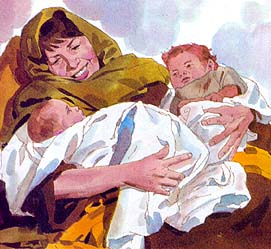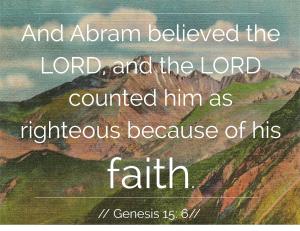Having tricked his brother into giving him his birthright, and his father into giving him the blessing of the firstborn son, Jacob gets what he wants but earns the hatred of his twin brother Esau, who plans to kill him. Tipped off by his co-conspiring mother, Jacob flees to uncle Laban until everything cools down.
Clearly, Jacob has a long way to go before he becomes a man of faith and character. But God begins working on him by both revelation and renewal of the Promise. God reveals himself to Jacob in a dream of a “stairway that reached from the earth up to heaven. And he saw the angels of God going up and down the stairway.” (Genesis 28:12)
In the dream, Jacob sees God at the top of the stairway. He identifies himself as “the Lord, the God your grandfather, Abraham, and the God of your father, Isaac.” The third generation of the Promise has begun, and accordingly, God renews his covenant promise with Jacob. Jacob learns by this unusual dream, and by the covenant renewal, that God is always working on earth to bring about his Promise to bless the nations.


